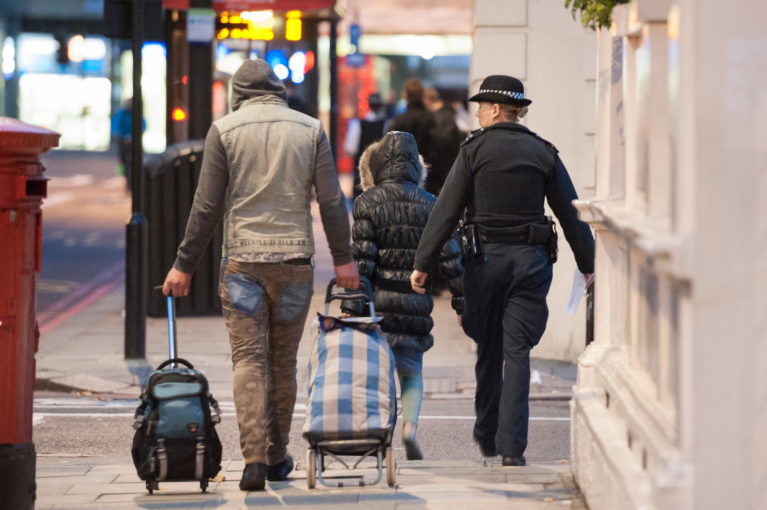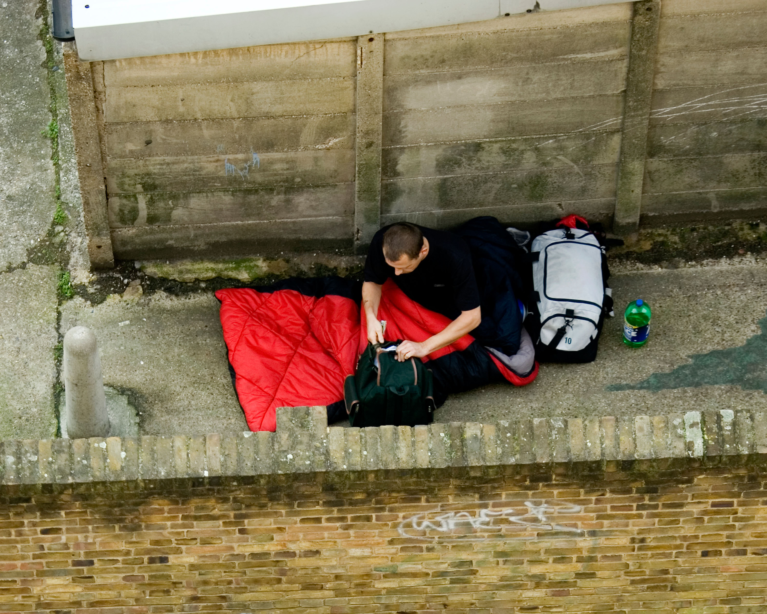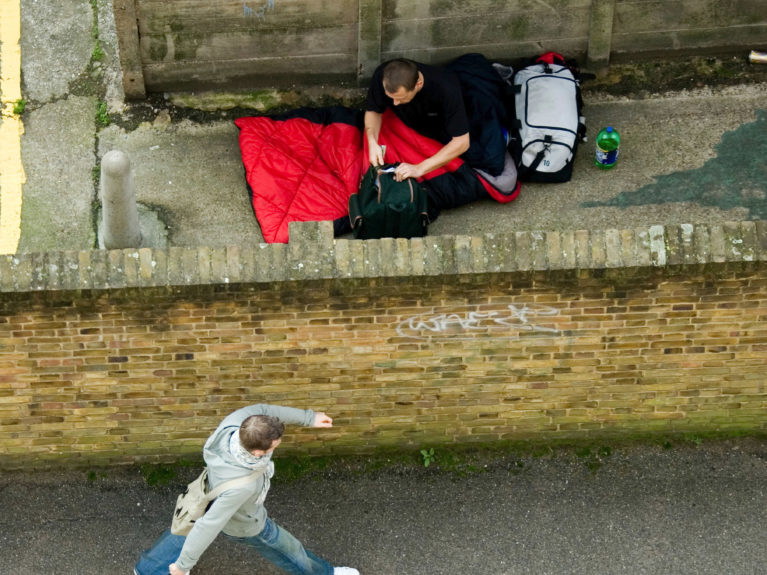Homelessness and public spaces / Hostile environment
How the Home Office is turning homeless workers into border guards
Posted by Gracie Bradley on 12 Jul 2019
Sajid Javid promised a “fairer, more compassionate” immigration system. Then we found out the Home Office has a secret scheme to turn homelessness outreach workers into border guards.
When Sajid Javid came to office in April 2018 at the height of the Windrush Scandal, he promised a “fairer, more compassionate” immigration system. It turns out what that looks like at the Home Office is a secret scheme to turn homelessness outreach workers into border guards, oxymoronically called the “Rough Sleeping Support Service” (RSSS).
According to the documents we obtained through a Freedom of Information request, the RSSS would see local authorities and homelessness charities sharing the personal information of homeless migrants with the Home Office.
The documents claim that this would allow outreach services to rapidly obtain a person’s immigration status and ensure the correct support options. But in reality a referral would also lead to a person’s case being expedited “for resolution” within the Home Office.
In practice, there is no guarantee that a person would be able to access independent legal advice at the time of their data being shared, especially as there is barely any legal aid for immigration cases.
The emails also show that the Home Office doesn’t plan to speed up its subject access request process, which despite being vital for evidencing a person’s right to remain in the UK, currently takes about 3 months.
Given this inequality of arms, a referral to the RSSS is very likely to result in fast-tracked immigration enforcement against a person – and not much else.
The proposed data-sharing deal put forward by the Home Office in an attempt to comply with the EU General Data Protection Regulation is laughable.
It suggests that a homelessness outreach worker should have an initial conversation with a person sleeping rough with their consent.
Then, having identified that the person may be eligible for referral to the RSSS (i.e. a migrant from outside the EU), the outreach worker should whip out a Home Office privacy notice and tell the person that they are re-starting the conversation on the basis of the “public task” of “delivering immigration controls”, and therefore may share anything that they disclose with the RSSS, regardless of whether or not they consent to it.
If any document more aptly demonstrates the breadth of Home Office ambition to turn everyone in society into agents of immigration enforcement, we have yet to see it.
St Mungos, one of the UK’s biggest homelessness charities, was present at a meeting at which it was agreed that this proposed data-sharing deal would be developed further, and also asked another charity to refer test cases to the RSSS.
Fortunately, that charity – Praxis – refused to do so, citing multiple concerns about the welfare of the migrants they support, and the security of their data.
This isn’t the first time the Home Office, local authorities and large charities have colluded to make homelessness services unsafe for people in need of support.
In 2016, the Home Office announced a new policy that declared sleeping rough an “abuse of treaty rights” under EU law. Charity outreach workers carried out “joint shifts” with Home Office immigration enforcement, and the Information Commissioner’s Office found that St Mungos likely passed information on rough sleepers to Home Office immigration enforcement.
The Greater London Authority went so far as to use charity data to build a map to help the Home Office target migrant rough sleepers – another secret project unearthed by a Liberty FOI. It was campaigning and litigation brought by NELMA and the Public Interest Law Centre which, thankfully, saw the policy declared discriminatory and unlawful.
The hostile environment is premised on denying people access to housing, bank accounts, and public funds. It forces people into the arms of exploitative landlords and employers, and is itself a key driver of poverty, exploitation, and homelessness.
In order to function, the hostile environment requires the willing cooperation of Government departments and service providers with the Home Office.
If homelessness charities are really concerned about upholding the rights of destitute migrants and dealing with the root causes of homelessness, they should join us in campaigning to end it.
For its part, the Government should prioritise firewalling essential services from immigration enforcement, amending the Data Protection Act to remove the “immigration control exemption”, and abandoning its plans to build a massive hostile environment database.
Only then can Sajid Javid’s aspirations to a “fairer, more compassionate” immigration system begin to approach reality.
I'm looking for advice on this
Did you know Liberty offers free human rights legal advice?
What are my rights on this?
Find out more about your rights and how the Human Rights Act protects them
Did you find this content useful?
Help us make our content even better by letting us know whether you found this page useful or not



